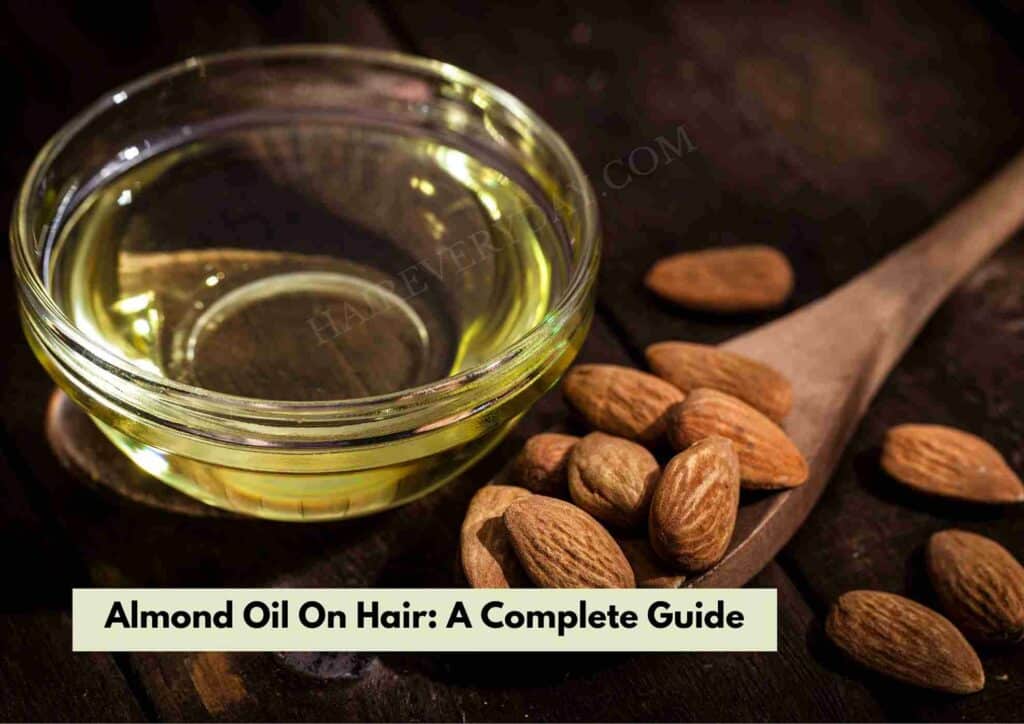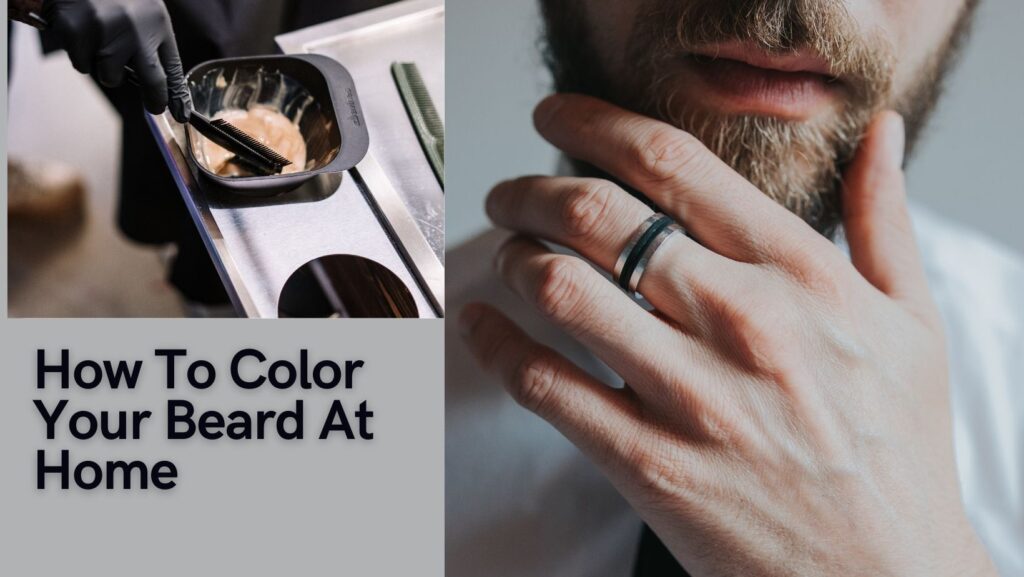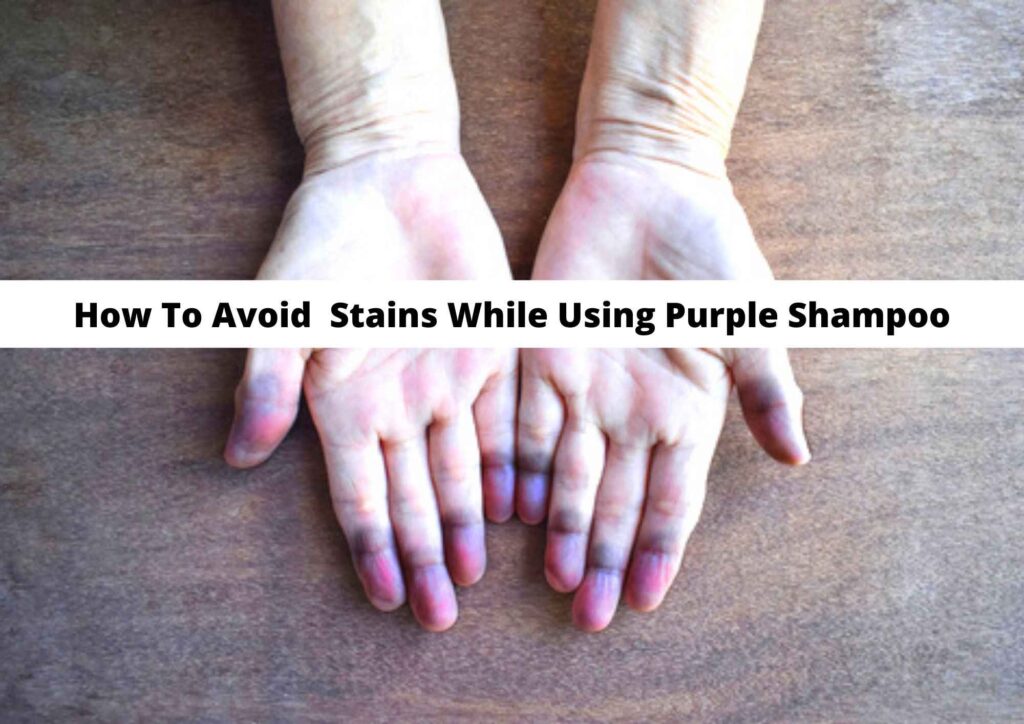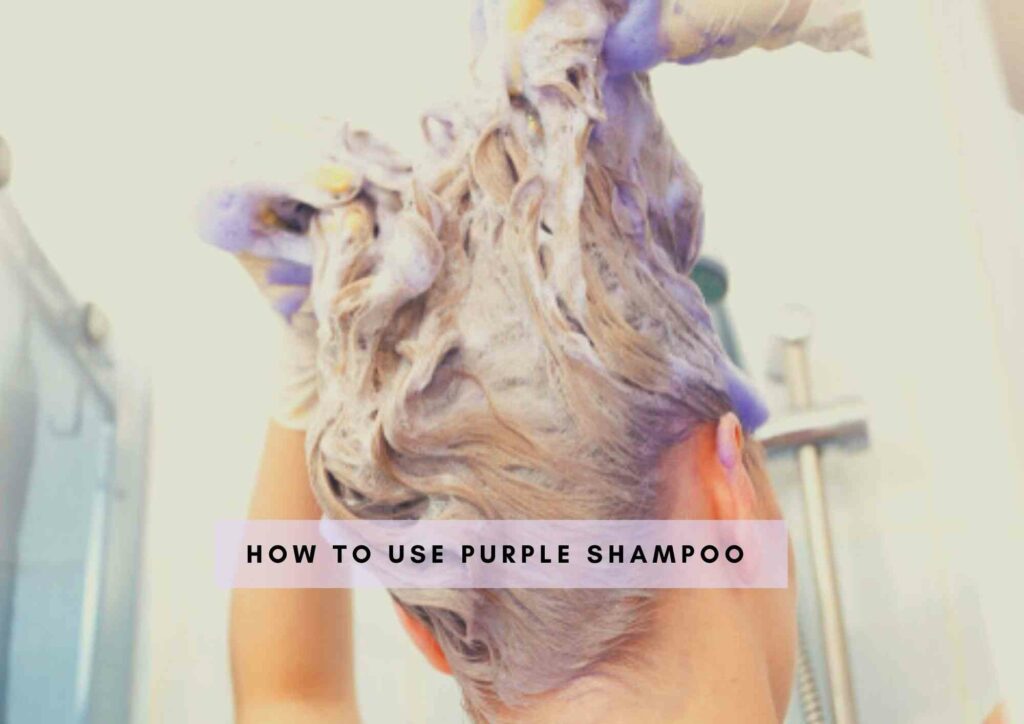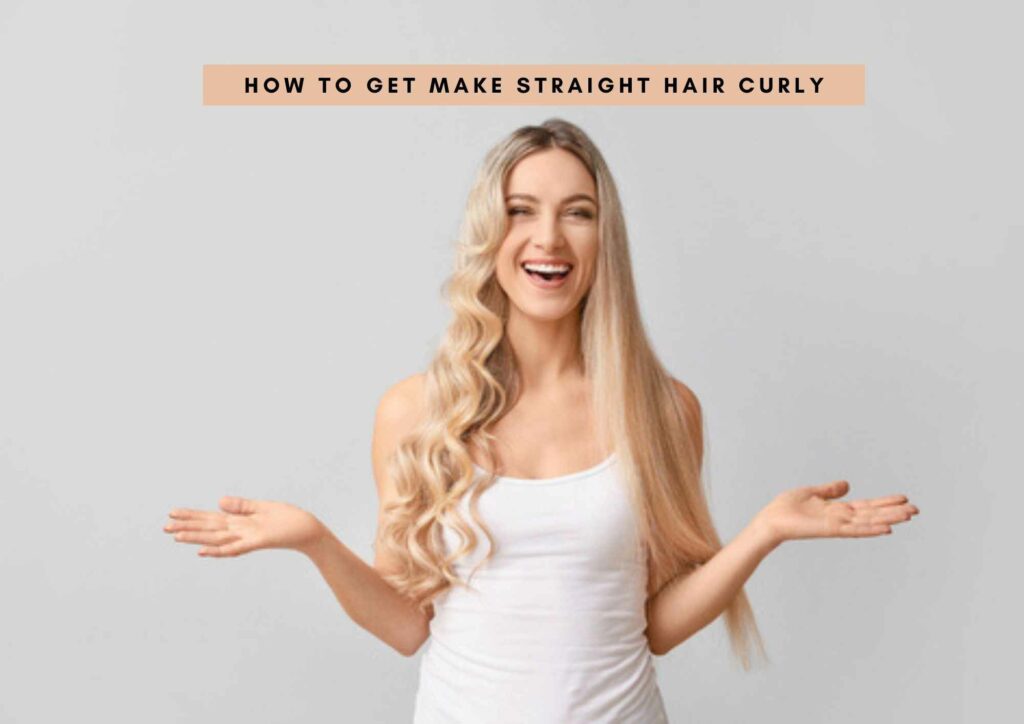Read to know about using almond oil on hair and learn how to use it, benefits, side effects, which hair type it suits and hair masks with almond oil.
Almond oil has been used for centuries in various beauty and medicinal practices. One of its lesser-known benefits is its ability to improve hair health. As someone who has struggled with dry and damaged hair, I was curious to learn more about the benefits of using almond oil on hair.
This oil is rich in vitamins E, D, and A, as well as fatty acids and antioxidants. (Ahmad, Zeeshan. “The uses and properties of almond oil.” Complementary therapies in clinical practice vol. 16,1 (2010): 10-2. doi:10.1016/j.ctcp.2009.06.015). These nutrients help to nourish and strengthen hair, while also promoting hair growth. Additionally, almond oil can help to reduce dandruff and prevent hair breakage.
Why You Should Trust Haireveryday?
The author of this article, Leah Marie Priest has a degree in Cosmetology with years of experience in dealing with hair care, scalp care, and hairstyling. As someone who extensively deals with all kinds of hair textures, products, styling methods and more, hair Leah Marie knows what kind of products and procedures suit each hair type and person. We have also tested these hair products and processes ourselves to provide you an unbiased review about every product. Each of our articles are also reviewed by a team of medical professionals so that you get the most accurate and expert-reviewed information.
Benefits of Almond Oil on Hair

Almond oil has been used for centuries as a natural remedy for hair care. As someone who has personally used almond oil on my hair, I can attest to the many benefits it provides. Here are some of the ways almond oil can benefit your hair:
1. Moisturizes and nourishes hair
Almond oil is rich in vitamins E and D, as well as essential fatty acids, which help to moisturize and nourish hair. Applying almond oil to your hair can help to prevent dryness and breakage, leaving your hair feeling soft and silky.
2. Promotes hair growth
Almond oil contains magnesium, which has been shown to promote hair growth. Massaging almond oil into your scalp can help to increase blood circulation, which in turn can stimulate hair growth.
3. Reduces dandruff and scalp irritation
Almond oil has anti-inflammatory properties, which can help to reduce scalp irritation and dandruff. Applying almond oil to your scalp can help to soothe and moisturize, reducing the appearance of flakes and itchiness.
4. Adds shine to hair
Almond oil can help to add shine to dull, lackluster hair. The vitamins and fatty acids in almond oil help to smooth the hair cuticle, giving your hair a shiny, healthy appearance.
Overall, almond oil is a natural, affordable, and effective way to care for your hair. Whether you have dry, damaged hair or are looking to promote hair growth, almond oil is a great option to consider.
How to Use Almond Oil on Hair

As someone who has used almond oil on my hair for years, I can attest to its many benefits. Here are three ways to incorporate almond oil into your hair care routine:
Pre-Shampoo Treatment
Before washing your hair, apply almond oil to the ends of your hair and work your way up to your scalp. Massage the oil into your hair and leave it on for at least 30 minutes, or overnight for a more intense treatment. This will help to nourish and protect your hair from the harsh chemicals in shampoo.
Conditioner Enhancement
Add a few drops of almond oil to your conditioner to give your hair an extra boost of moisture. This will leave your hair feeling soft and silky. Make sure to rinse your hair thoroughly to avoid any oily residue.
Scalp Massage
Massaging almond oil into your scalp can help to stimulate hair growth and improve the overall health of your hair. Simply apply a small amount of oil to your fingertips and massage it into your scalp in circular motions. Leave the oil on for at least 30 minutes before washing your hair.
Incorporating almond oil into your hair care routine is a simple and effective way to improve the health and appearance of your hair. Give it a try and see the results for yourself!
Potential Side Effects of Almond Oil on Hair
As with any hair care product, there are potential side effects to using almond oil on your hair. While almond oil is generally safe for most people, it’s important to be aware of these potential side effects:
- Allergic reactions: Some people may have an allergic reaction to almond oil, which can cause itching, redness, and swelling on the scalp. If you experience any of these symptoms, stop using almond oil immediately and consult a doctor.
- Greasy hair: Almond oil is a heavy oil, which means it can leave your hair feeling greasy and weighed down if you use too much. Be sure to use only a small amount of almond oil and avoid applying it directly to your scalp.
- Buildup: Using too much almond oil can also cause buildup on your hair and scalp, which can lead to dandruff and other scalp issues. Be sure to wash your hair regularly to prevent buildup.
- Staining: Almond oil can stain clothing and bedding, so be sure to cover your hair with a towel or shower cap if you plan to leave the oil on overnight.
Overall, almond oil is a safe and effective hair care product when used in moderation. However, it’s important to be aware of these potential side effects and use almond oil responsibly to avoid any issues.
Can I Use Almond Oil on Hair Everyday

As someone who regularly uses almond oil on my hair, I can confidently say that it is safe to use on a daily basis. Almond oil is a natural and gentle oil that is rich in vitamins and minerals that are beneficial for hair health.
However, it is important to note that using too much almond oil on your hair can lead to greasiness and buildup. It is recommended to use a small amount of almond oil and evenly distribute it throughout your hair.
Additionally, it is important to consider your hair type and texture when deciding how often to use almond oil. Those with fine or thin hair may find that using almond oil daily weighs down their hair, while those with thick or curly hair may benefit from daily use.
Overall, using almond oil on your hair everyday can be a great way to nourish and protect your locks. Just be sure to use it in moderation and consider your individual hair needs.
| Pros | Cons |
| Nourishes hair | Can cause greasiness if used in excess |
| Protects hair | May not be suitable for all hair types |
| Natural and gentle | |
| Rich in vitamins and minerals |
Frequently Asked Questions
Conclusion
In my experience, incorporating almond oil into my hair care routine has yielded positive results. Almond oil has been shown to improve hair thickness, shine, and overall health. It is also a great natural alternative to commercial hair products that may contain harmful chemicals.
One of the benefits of almond oil is its ability to moisturize hair without leaving a greasy residue. This is due to its high content of fatty acids and vitamin E. Additionally, almond oil can help to prevent hair breakage and split ends, making it an ideal choice for those with damaged or brittle hair.
Another advantage of using almond oil on hair is its ability to promote hair growth. Its nourishing properties help to strengthen hair follicles, which in turn can lead to faster and healthier hair growth. Almond oil can also help to reduce scalp inflammation and dandruff, which can hinder hair growth.
So basically, incorporating almond oil is a natural and effective way to improve hair health and appearance. However, it is important to note that everyone’s hair is different, and what may work for one person may not work for another. As with any new hair product, I recommended doing a patch test to check for allergies.
Also Read:
DIY Lemon Hair Mask For Dandruff Easy
To Summarize

